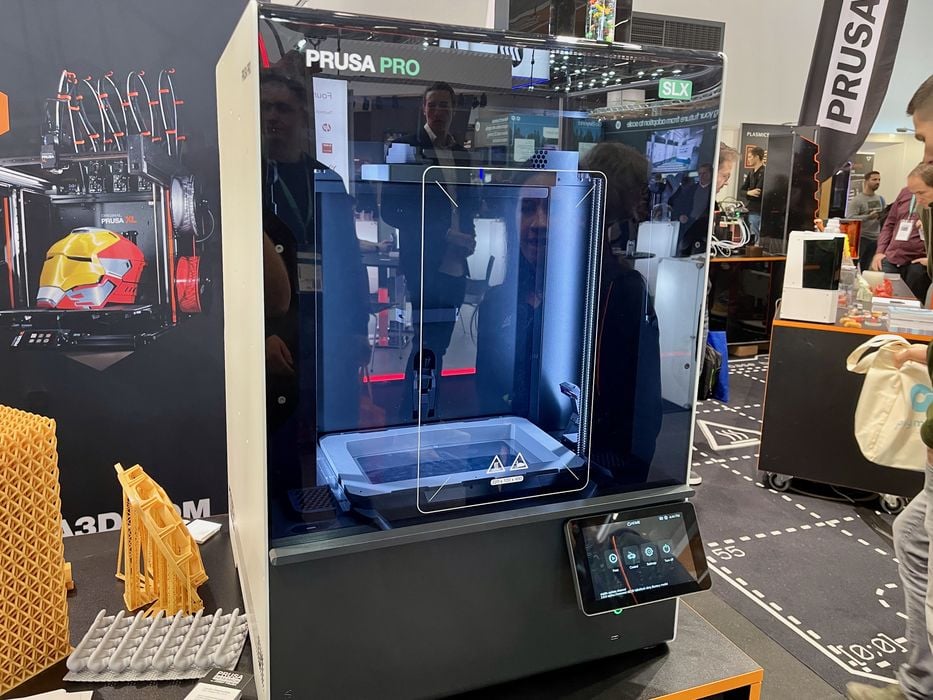
We had a look a Prusa Research’s upcoming resin 3D printer, the SLX.
The company, which launched a decade ago, has for the most part depended on their FFF technology. That allowed them to become the makers of one of the most popular desktop 3D printer lines ever seen.
Then they introduced the SL1, an interesting desktop resin 3D printer that has been adopted by many. The company integrated it into their software system, PrusaSlicer, making it easy for operators with both systems.
Now we see they’re developing the SLX, a more advanced version of their resin technology.
However, the SLX we saw was labeled with the Prusa Pro branding.
Prusa Pro is a new brand created by the company to represent their non-consumer devices. In other words, the more expensive professional 3D printers will be under the Prusa Pro banner.
Initially the company slid the equipment from their Trilab acquisition under the Prusa Pro brand, which makes sense. The Trilab machines are quite different from the flagship i3 FFF desktops: they are delta-style machines with enclosures and able to handle higher temperatures.
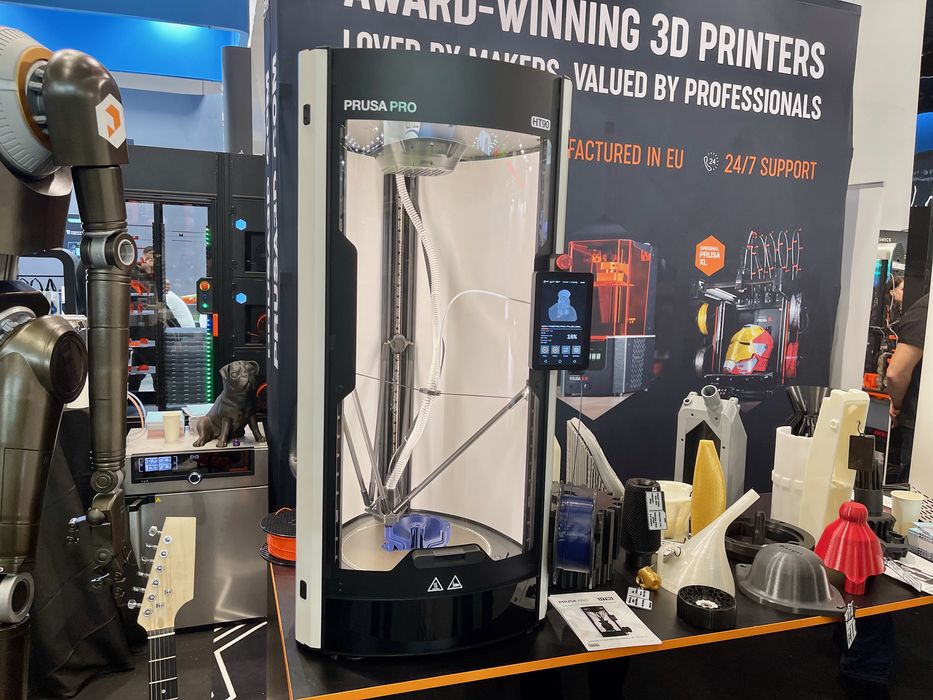
For example, this is the HT90, one of the Prusa Pro devices.
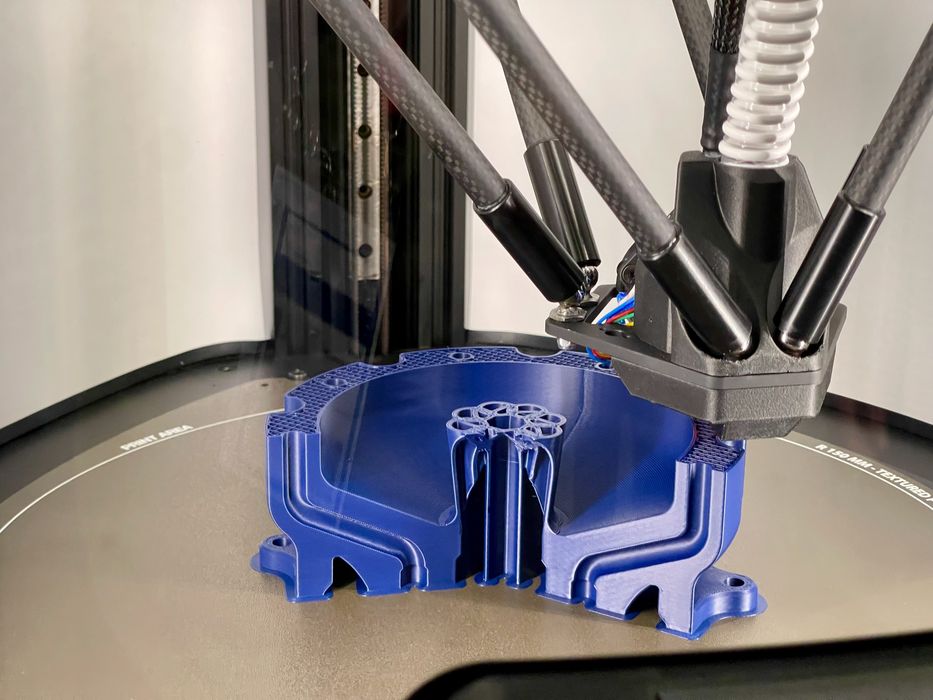
It’s an interesting device that can produce very high quality parts in engineering-capable materials.
But back to the SLX. While there are obviously cues from the much smaller SL1, the SLX seems to be quite a different device.
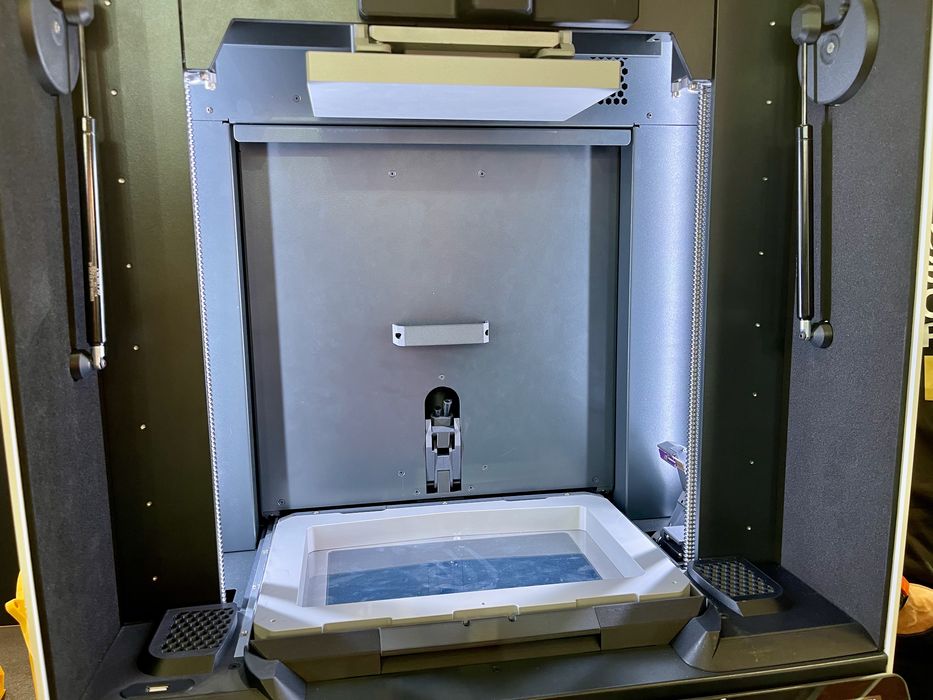
It’s not currently for sale, and seems to be a public prototype. The device was being shown to the public to obtain feedback, which we provided after having a look at the machine.
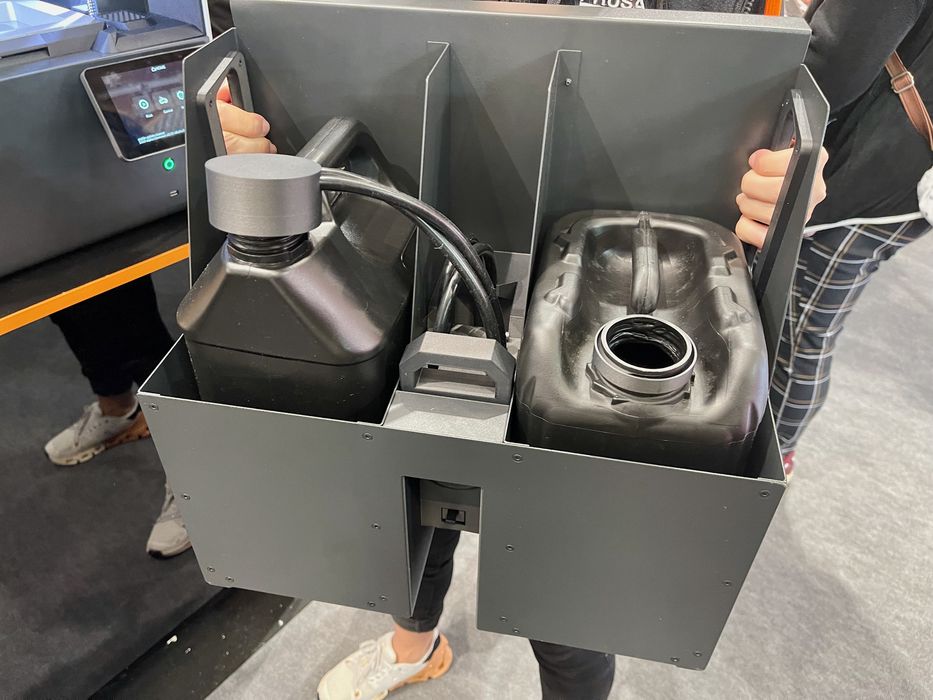
Like other Prusa Pro equipment, the SLX seems to be a professional-level machine. It’s designed for production purposes, as it has a sophisticated resin system that allows for considerable building.
One interesting feature is a way to pre-heat the resin. This is important because hotter resin flows more easily, likely making layer changes much faster in the SLX.
There’s few details about the SLX, but one of my concerns was safety. I’ve seen too many machines that seem to ignore the fact that there will be plenty of drippy resin around the machine. That’s why I always ask myself, “how will I clean this machine?”
We provided that feedback and more to Prusa Research, and I’m hoping they incorporate our thoughts.
Via Prusa Research
